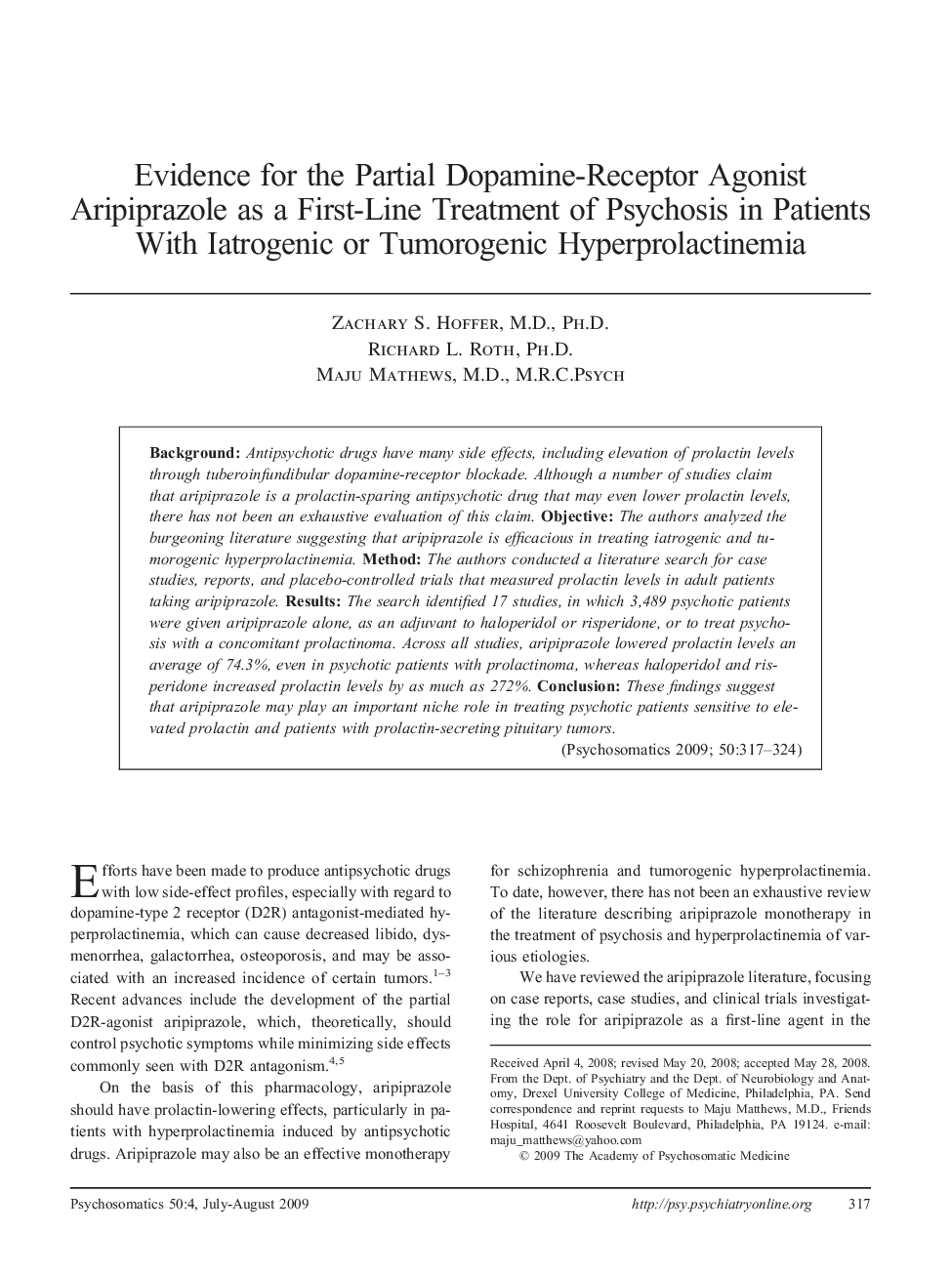| Article ID | Journal | Published Year | Pages | File Type |
|---|---|---|---|---|
| 338729 | Psychosomatics | 2009 | 8 Pages |
BackgroundAntipsychotic drugs have many side effects, including elevation of prolactin levels through tuberoinfundibular dopamine-receptor blockade. Although a number of studies claim that aripiprazole is a prolactin-sparing antipsychotic drug that may even lower prolactin levels, there has not been an exhaustive evaluation of this claim.ObjectiveThe authors analyzed the burgeoning literature suggesting that aripiprazole is efficacious in treating iatrogenic and tumorogenic hyperprolactinemia.MethodThe authors conducted a literature search for case studies, reports, and placebo-controlled trials that measured prolactin levels in adult patients taking aripiprazole.ResultsThe search identified 17 studies, in which 3,489 psychotic patients were given aripiprazole alone, as an adjuvant to haloperidol or risperidone, or to treat psychosis with a concomitant prolactinoma. Across all studies, aripiprazole lowered prolactin levels an average of 74.3%, even in psychotic patients with prolactinoma, whereas haloperidol and risperidone increased prolactin levels by as much as 272%.ConclusionThese findings suggest that aripiprazole may play an important niche role in treating psychotic patients sensitive to elevated prolactin and patients with prolactin-secreting pituitary tumors.
